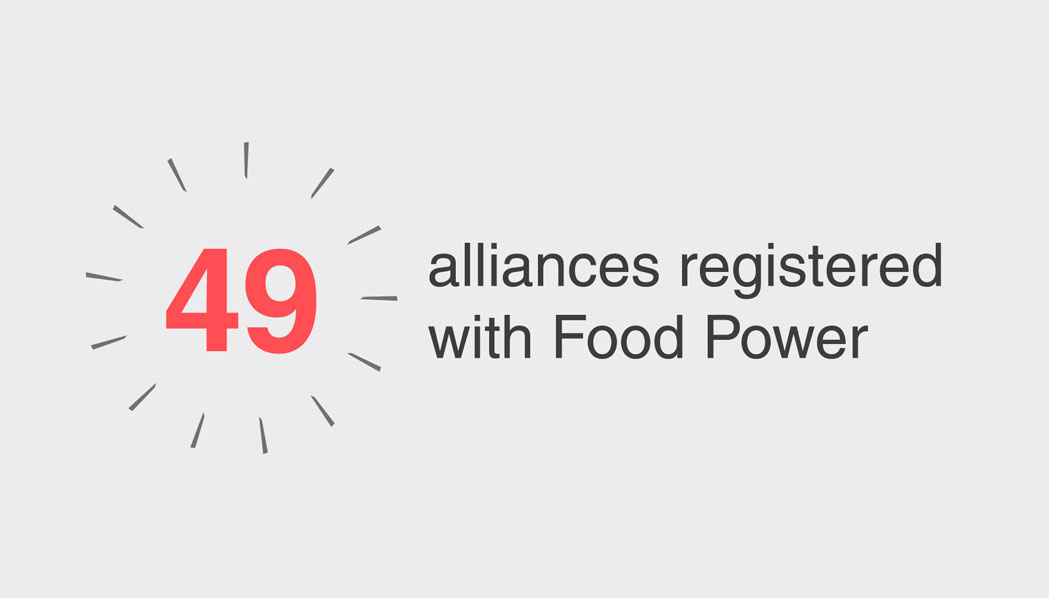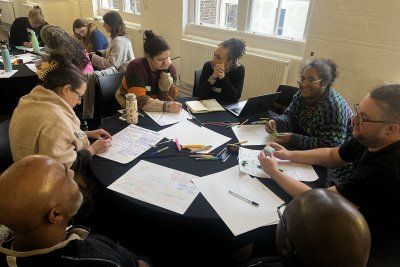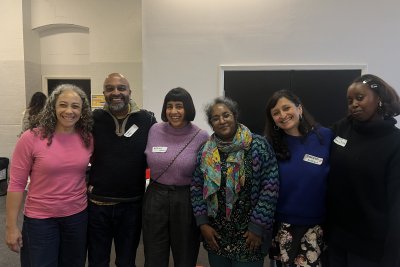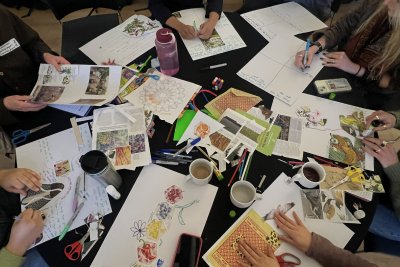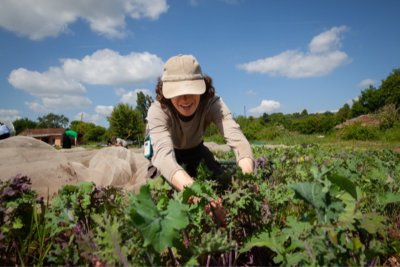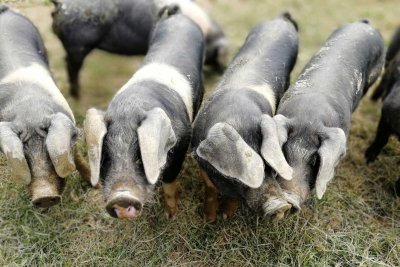Food Power supports food poverty alliances around the country to develop a sustainable response to food poverty and its root causes. Our independent evaluators from Cardiff University have evaluated the first year of the programme; we’re grateful for their work and the alliances who shared their experiences with them. We’re pleased that the evaluation had many positive findings and an executive summary is available to download.
The Food Power network has grown beyond expectation, so we need to take steps to maintain engagement and manage expectations. We are very pleased that over 50 areas from around the UK are involved in the programme and that alliances are accessing the different elements of the programme. We always expected alliances would be involved in the programme to varying extents, driven partly by their and our capacity. But we will also continue to ensure that all members are aware of the range of ways to get involved, including financial support, peer mentoring, regional learning networks, webinars and other resources to develop their alliance, produce a food poverty action plan, involve experts by experience or maximise family income.
We need to continue to communicate our goals to alliances and their members, using a range of methods. Each alliance has two leads who act as the go-between for Food Power and alliance members. We’ve found that our core objectives and messages aren’t always reaching everyone within an alliance. We’ll continue to regularly share the programme’s aims and encourage alliance leads to communicate about Food Power to their wider membership. We'll also continue to invite all members to sign up to the Food Power newsletter, as well as visit our website for our resources, webinars, case studies and action pages.
Many food poverty alliances do not have long-term funding and Food Power financial support is modest and time-limited. There is a need for guidance and other support to foster long-term sustainability. We recognise this issue and have started to share additional advice on developing an alliance. We are also working to ensure that other funders are aware of the Food Power network, and are offering them advice on how to structure funding opportunities to be relevant and accessible to the network.
Alliances that are just starting out require support that is tailored to their particular circumstance. We’ve adjusted the type of financial support that we offer to better fit the needs of new alliances, offering smaller amounts so that they can focus on establishing the group, developing a proposal for further financial support and visiting other alliances to learn about their work. Our peer mentors will also continue to prioritise some of their time for supporting new alliances.
There is a gap in evidence on the combined local impact of food poverty alliances and it is unclear whether there is an alliance structure which is more likely to be successful. We have had positive feedback that we are not overly prescriptive on what an alliance should look like. Alliances are taking diverse approaches to how they work and we aim to draw conclusions about the effectiveness of different alliance structures later in the programme. Our upcoming work on local evaluation is intended to partly address this knowledge gap. In the absence of UK-wide government measurement of household food insecurity, alliances face common challenges around assessing this at the local level and using data to measure their impact. Alongside the proxy measures identified in our food poverty action plan guide, we have recently added examples of alliances’ research tools to the website. Alongside this, alliances have told us that they’d like support to develop skills for building relationships and working in partnership. Our new web page offers advice in this area and this would be a great topic for discussion at regional learning networks.
Sharing from our work supporting alliances to involve experts by experience should help to build alliances’ knowledge and understanding of this aspect of our work. Alliances currently piloting this work are documenting this progress and we’ll share this widely. We know that it will take some time to evidence the impact of involvement of experts by experience – in terms of the value for them as individuals, for alliances and for local decision-making. An early example is Blackburn with Darwen’s Food Alliance’s work involving young people in developing their good food plan which is inspiring others to think about how they can involve experts in their work.
Overall, we are really pleased with the direction the programme is taking and the level of engagement from local areas. We’re very much open to responding to feedback from the network and will continue to review and shape the programme according to alliances’ needs.
Find out more about Food Power and join the mailing list.
Food Power: Food Power is an exciting new programme working with local communities across the UK to strengthen their ability to reduce food poverty.
